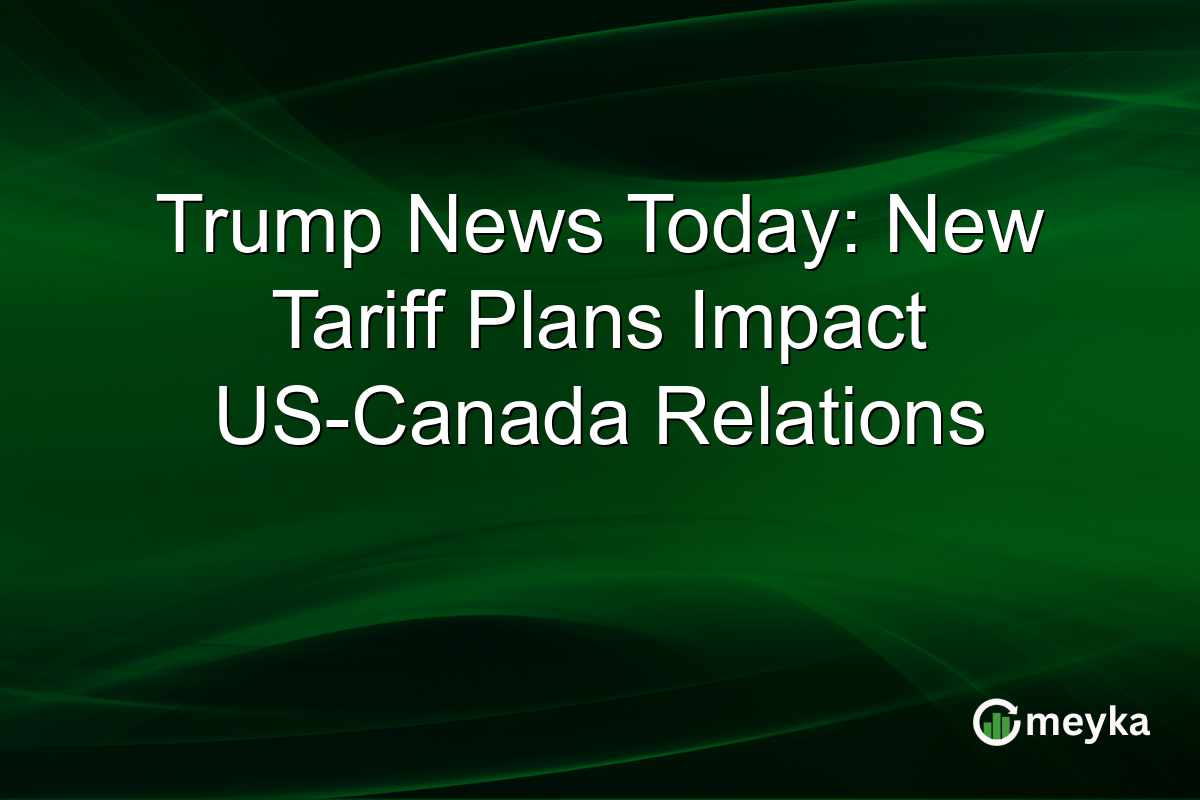Trump News Today: New Tariff Plans Impact US-Canada Relations
In recent developments, President Trump has revealed plans to impose a 10% tariff on select Canadian goods. This decision has sent ripples through various sectors heavily reliant on US-Canada trade. With the potential to impact industries from automotive to agriculture, Trump’s tariff news has sparked concern among economists and business leaders.
Understanding Trump’s Tariff Plans
President Trump’s announcement of a 10% increase in tariffs on certain Canadian imports marks a significant shift in US-Canada trade policy. Historically, the two countries have maintained a robust trading relationship, with cross-border trade totaling over $600 billion annually. This tariff decision comes as part of a broader strategy to address trade imbalances. It reflects ongoing tensions surrounding negotiations for more favorable trade terms for the United States.
Granted, this move could strain diplomatic relations further. Analysis from economists suggests that while tariffs aim to protect domestic industries, the result often includes increased prices for consumers and potential retaliation from trading partners.
For more insights, you can read latest updates on NBC News.
Impact on the Canadian Economy
The Canadian economy stands at a critical juncture with these tariff plans. A 10% tariff could elevate costs for Canadian exporters, particularly in key sectors like automotive, agriculture, and manufacturing. Analysts warn that this could lead to reduced competitiveness of Canadian goods in the US market, potentially affecting jobs and economic growth.
Furthermore, this disruption in trade relations may compel Canadian companies to seek new markets or pivot strategies to offset the downturn in exports. A recent report indicated that up to 5% of the workforce in export-heavy regions could see job threats if the tariffs persist.
See what the latest conversations on Twitter are saying about Trump’s recent trade moves.
Effects on US-Canada Trade Relations
US-Canada trade relations have traditionally been cooperative, built on mutual dependence. However, these new tariffs introduce uncertainty and may lead to tension-filled negotiations. The imbalance could further exacerbate by potential retaliatory tariffs from Canada, targeting US goods.
Historical data shows that trade disputes often result in decreased bilateral trade volumes. This impacts not only the exporting industries but broader economic health. A decline in imports and exports may contribute to GDP fluctuations, influencing economic stability on both sides.
Trade specialists advocate for resolution through diplomatic channels, emphasizing the importance of maintaining transparent communication to prevent long-term damage.
Final Thoughts
In summary, Trump’s new tariff plans targeting Canadian imports could reshape US-Canada trade dynamics significantly. While intended to boost US industry, the broader implications include potential strain on bilateral relations and economic challenges for Canada. Companies within both nations must navigate these changes strategically. Engagement through diplomatic dialogue remains crucial to mitigating adverse effects and sustaining mutually beneficial trade. Observing how these tariffs unfold will help businesses and policymakers adapt to evolving trade landscapes.
FAQs
The tariffs could increase costs for Canadian exporters, leading to decreased competitiveness in the US market. This may strain the historically strong trade relations between the two nations, potentially resulting in retaliatory actions.
The automotive, agriculture, and manufacturing sectors in Canada are likely to feel the most significant impact due to their heavy reliance on exports to the United States. Increased tariffs can affect pricing and market share in these industries.
Yes, Canada may consider imposing retaliatory tariffs on US goods. Such actions would escalate trade tensions and potentially lead to negotiations aimed at tariff reduction or removal.
Disclaimer:
This is for information only, not financial advice. Always do your research.






